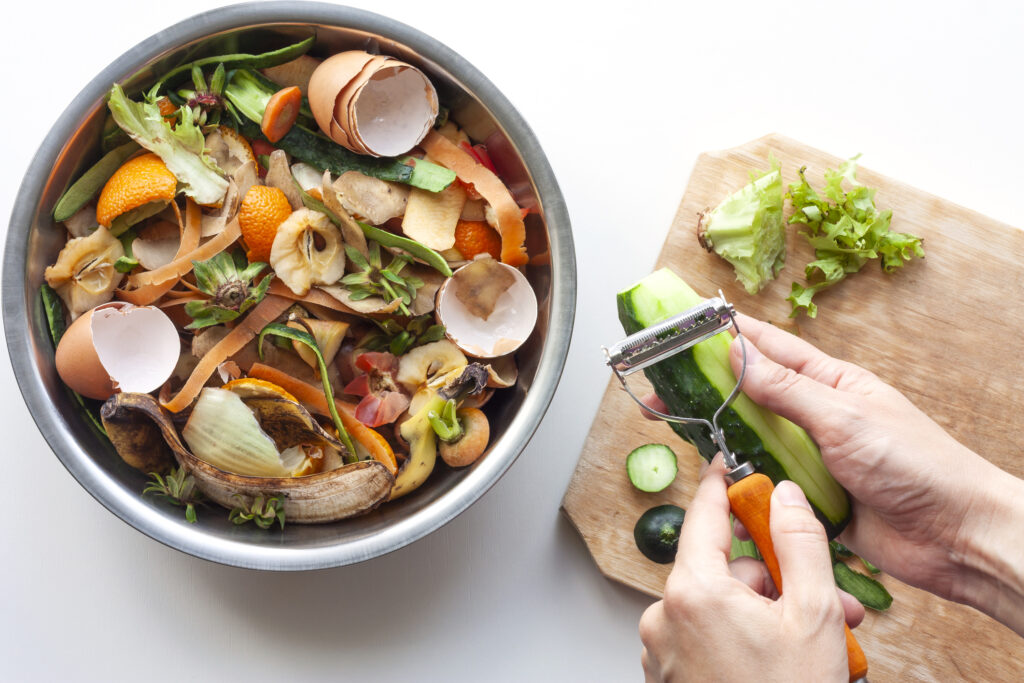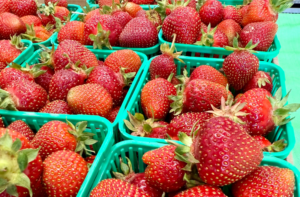Imagine yourself enjoying a warm and sunny Saturday. It’s mid afternoon and you decide to grab a little snack from the fridge – a few slices of cucumber, or perhaps one of those apples you have tucked away in the bottom drawer. However, much to your dismay, instead of finding a firm cucumber or a crisp apple, your fingers are greeted with something squishy and soggy! Yuck! Turns out that produce you thought would get you through this week has gone and turned to mush when you weren’t looking!
It’s the dreaded food waste, and it’s a struggle that humankind has faced for as long as we’ve been gathering and storing food. Did you know that organic waste can make up to 25 to 50% of all household trash? That’s a lot of fruits and vegetables that end up being tossed because they’ve gone bad, long before we’re able to consume them. Luckily, as an ancient problem, there also happens to be an ancient solution!
Welcome to the wonderful science of composting! A not-so-lost art that dates all the way back to the Neolithic period. Evidence suggests that, back then, farmers would run a plough through their midden heaps to distribute organic waste across their fields; this would result in a more fertile land and higher crop yields! And although this method was used thousands of years ago, it really isn’t all that different from how we still do things today. Composting takes organic materials – such as kitchen scraps, spoiled food and plant matter – and breaks them down into a nutrient-rich, soil-like substance that helps return balance to fields and gardens. Now, we know that not everyone is a gardener – and with the increased demand for urban farming, renting a plot in a community garden may prove difficult – but even if you don’t have a garden to tend to, that doesn’t mean you should let your organic waste wind up in the garbage!
So, start by finding a bin that works for you, and let’s dive into some composting 101.
While it’s tempting to throw everything into the composter and call it a day, one of the most important things to keep in mind is that: just because it’s organic, doesn’t mean it’s necessarily compost friendly! Remember that what you’re throwing in your composter can have a serious impact on the microorganisms that help break down the organic material, and can even affect the plants you’re using the compost on!
Materials you SHOULD compost:
- Grass clippings, tree leaves and wood shavings.
- Kitchen and food scraps (coffee grounds, lettuce, potato peels, banana peels, avocado skins, etc).
- Black and white newspaper, printer paper, and cardboard.
- Vegetarian animal manure (rabbits, hamsters, etc).
Materials to consider before composting:
- Scraps containing animal products: while eggshells are great for compost, they can attract scavengers like raccoons, rats and opossums if your compost is outside. If it is, consider if your bin has a secure lid, before adding materials like this!
- Invasive weeds: they’ll not harm your compost, but they may come back as unwelcome guests where you spread your compost.
Materials you SHOULDN’T compost:
- NO diseased yard waste: composting will not kill the disease, and your compost could spread the disease to other plants.
- NO meat, fat (including butter and oil), dairy or bones: not only can these scraps carry risk of disease when composted, but they can attract animals who will damage your bin trying to get at them.
- NO non-vegetarian manure: while it is possible to compost these materials, your compost pile must get extremely hot in order to kill any harmful microbes. It’s best not to take the risk!
Don’t have a green-thumb or any house-plants in need of a little extra nutrition, or are unsure what to do now that you’ve got all the right materials for a nutrient-rich compost pile? Good news! There are a few options available to you:
- Check out the free Share Waste app, where you can find a “compost host” for your food waste!
- Consider signing up with a company like Village Compost, that offers composting services and removal.
- Or get involved with a community compost and garden, like the one available to all of our residents, right here at the heart of West 5! Doing so will give you the freedom to grow your own food, and repurpose that food waste so it does more good than harm!
Whether you’re out in the country with a garden of your own, or in an apartment complex with a limit on how many plants you can possibly fit in the space, composting should be the solution for your organic waste! It helps cut down on what wrongly ends up in a landfill, helps to reduce your individual carbon emissions, and you can feel good knowing that that squishy cucumber, or rotted apple, is being used to feed the soil and create something new, instead of those nutrients going to waste in the garbage.
Interested in learning more about community gardens and composting, or composting services offered in West 5 residences like Hēlio? Don’t be afraid to contact us! We’re always happy to grow our West 5 community.




